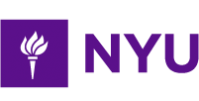Cryptocurrency Courses
Take free online cryptocurrency courses from top institutions and universities including Berkeley, The Linux Foundation and more. Enroll today.

learn cryptocurrency
What Is Cryptocurrency?
Cryptocurrency takes everything about traditional currency and turns it on its head. It's a digital currency powered by cryptography, a built-in security feature that makes it difficult (if not impossible) to counterfeit, with most operating through blockchain technology. It's decentralized, meaning that instead of an institution acting as a gatekeeper, a network of computers both maintain distributed ledgers and run the programs that maintain the currency's authenticity.
How Does Cryptocurrency Work?
In the 1990s, everyone was talking about how to build the first decentralized currency system that could transcend traditional financial institutions, be above complications such as exchange rates, and remain immune to organizational interference (i.e., governments, for example). The first cryptocurrency, Bitcoin, was created by Satoshi Nakamoto in the pursuit of decentralizing the financial system. There's no central bank or authority, and all transactions are maintained through a disparate network of computers that manage the records. The cryptocurrency market works like this. You purchase a "token" from your cryptocurrency of choice and use it to buy things online. There's no need to worry about exchange rates because the work is done for you. By switching to bitcoin cash, you're able to make transactions online safely. The tokens represent entries in a public ledger. The entries use encryption methods like public key and private key pairs or hashing functions. Bitcoin retains the lion's share of the market, but other "altcoins" (Ethereum, litecoin, ripple/xrp, monero) are getting more popular.
Learn Cryptocurrency
In the absence of a central authority, there's a lot of room for experts to build careers both within cryptocurrency and as a critical business skill. Virtual currencies could change the way we do just about everything with the cryptocurrency system forming the basis of activities previously served by traditional financial institutions. Understanding how cryptocurrency exchanges operate and what makes these revolutionary financial transactions so, well, revolutionary puts you at the forefront of a business world built around open-source, peer-to-peer (p2p) markets.
Cryptocurrency Courses And Certifications
UC Berkeley's professional certification program, Blockchain Fundamentals, prepares you to harness the primary technologies behind cryptocurrencies in preparation for a job market with lots of openings and few qualified applicants. It also includes a primer with Solidity, a language for creating smart contracts and something in very high demand. Other course options include the University of Hong Kong's Fintech Ethics and Risks course, UC Berkeley's Introduction to Bitcoin and Cryptocurrencies, and Linux Foundations course on Blockchain fundamentals. Even if you aren't in business, mining cryptocurrencies is time-consuming, and creating blocks requires a proof-of-work for acceptance. Understanding these concepts now prepares you for the future of how we work. Additionally, courses or boot camps in topics like fintech provide more opportunities to learn.

















